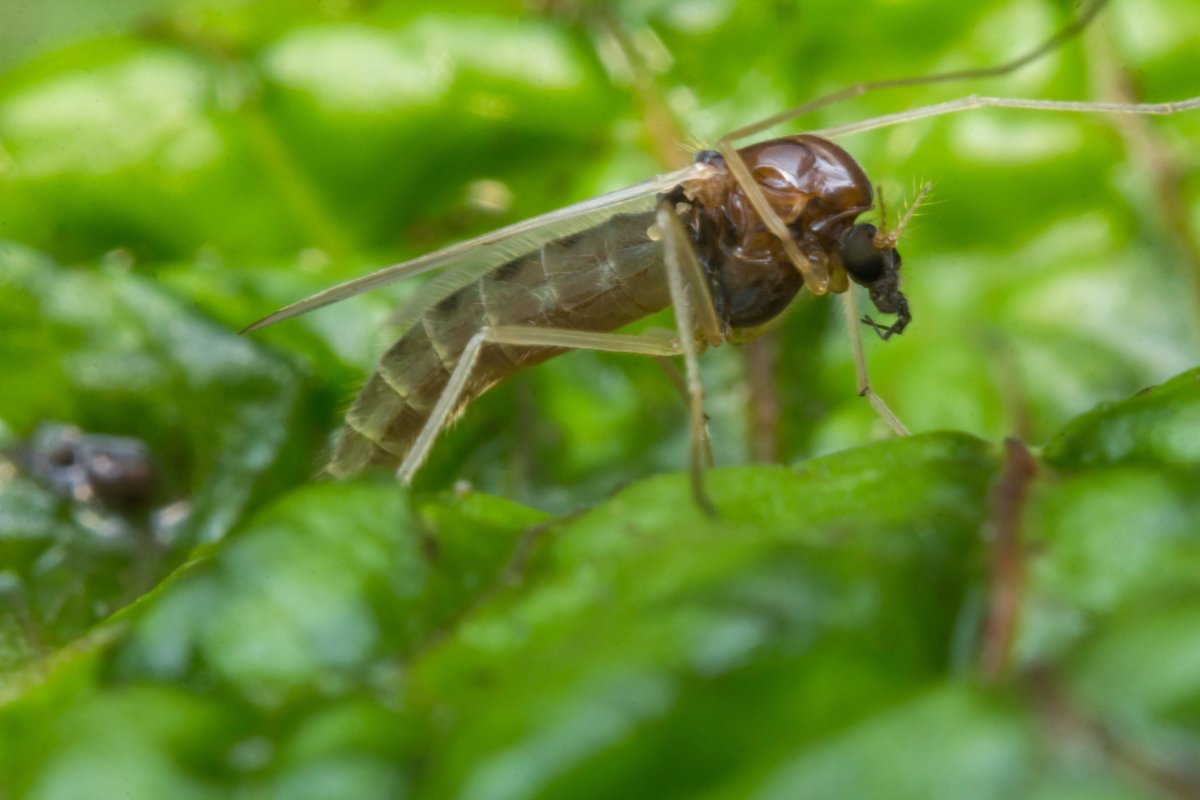A tropical disease, once only seen in returning travelers, is gaining a "firm foothold" in the southern United States, scientists warn.
Experts have also raised concerns that a life-threatening form of the disease, carried by imported dogs, could establish itself in the U.S.
Cutaneous leishmaniasis is a potentially disfiguring skin disease caused by a single-celled parasite called Leishmania, which is spread by the bites of infected sand flies.
"Some people with cutaneous leishmaniasis have silent infection, which means they do not have any symptoms or signs [of the disease]," Jenny Park, a health communication specialist at the U.S. Centers for Disease Control and Prevention (CDC) with the Division of Parasitic Diseases and Malaria, told Newsweek. "People who do develop symptoms have one or more skin sores, usually on exposed areas of their body (e.g., limbs, face) that can range from small bumps or nodules to larger ulcers that eventually scab or crust.
"The ulcers are usually not painful but can become large and cause disfiguring scars. The most serious forms of cutaneous leishmaniasis affect the mucous membranes inside of the nose, mouth, throat and can cause destruction of cartilage or bone that can be severe."
Historically, the condition has been seen as a tropical disease, affecting mostly the Middle East, central Asia, northern Africa and Latin America. However, over the last 10 years, researchers from the CDC and universities across the U.S. have noticed a concerning rise in domestic cases, originating in the U.S, in people who had no history of international travel.
By studying the DNA of these home-grown parasites, the researchers found that those who had been infected within the U.S. contained a distinct strain of the parasite, potentially adapted to spreading through local sand fly populations.

"There have been previous indications of local transmission based on a small number of case reports, but now, for the first time, we have a distinct genetic fingerprint from a relatively large cluster, providing further evidence that leishmaniasis may be well-established in some parts of the United States," Mary Kamb, with the Division of Parasitic Diseases and Malaria at CDC's National Center for Emerging and Zoonotic Infections, said in a statement.
So far, patients have been diagnosed with the condition in Texas, Oklahoma, Arizona and North Dakota. However, this disease is unlikely to be restricted to the southern U.S.
"Ideal sand fly habitats already exist in many of these northern states," Scott Bernhardt, an assistant professor of public health at Utah State University, who was involved in the study, told Newsweek. "If suitable seasonal temperatures were to be more standard during summer and over wintering seasons, it is possible to see competent sand fly vectors and pathogen transmission in additional states."
Meanwhile, there is growing evidence that a life-threatening form of the disease, called visceral leishmaniasis, could also begin to infect U.S. sand fly populations. Visceral leishmaniasis can affect the internal organs, and results in between 20,000 and 30,000 humans deaths every year and it is also spread by sand flies. The parasite, another species of Leishmania, is thought to be coming into the U.S. in increasing numbers through the importation of dogs from regions where the disease is common.
"Dogs are the primary host for this disease, and there are dogs now regularly coming into the U.S. that have lived in areas where Leishmania parasites circulate in animals and people," Christine Petersen, the director of the Center for Emerging Infectious Diseases at the University of Iowa and co-author on the study, said in a statement.
While infected dogs can be treated with medications to reduce the number of parasites that they carry, the condition often relapses, meaning imported dogs may require regular screening and treatment.

To prevent the spread of this disease, research and surveillance efforts will need to be stepped up across the U.S. "As with many public health interventions, proactive and preventive measures can protect the U.S. population against leishmaniasis," David Marquez, a veterinary public health officer at the U.S. Army and co-author on the study, told Newsweek. "Sand fly research is needed to identify additional species native to the U.S, their distribution, host-feeding preferences, and ability to transmit leishmania parasites. The U.S. should also improve disease surveillance efforts, through increased state and federal reporting of positive cases in humans and animals."
The CDC team hopes that the unique genetic fingerprint of this domestic strain will make it easier to detect the emergence of locally acquired infections in new areas. There are no vaccines or preventative drugs for this condition, but there are some precautions at-risk individuals can take to protect themselves from these diseases.
"People can protect themselves by avoiding bites from sand flies," Park said. "For people spending time outdoors in areas with sand flies, it helps to wear long-sleeved shirts, long pants, and socks, and avoid outdoor activities during dusk to dawn, which is when sand flies are most active. Using insect repellent on exposed skin can be helpful. Insecticide-treated clothing can also help protect against sand flies.
"For people spending time indoors in areas known to have sand flies, it helps to stay in well-screened or air-conditioned rooms. Spraying living and sleeping areas with an insecticide can kill sand flies and other insect vectors. If the sleeping area does not have screens or air conditioning, an insecticide-treated bed net can be helpful."
Marquez added that pets can also be vulnerable. "Pet owners should ensure their pets also receive appropriate insect repellents/insecticides during sand fly season and see a veterinarian regularly, particularly if the pet has traveled internationally with the owner to a leishmania endemic area," he said.
Uncommon Knowledge
Newsweek is committed to challenging conventional wisdom and finding connections in the search for common ground.
Newsweek is committed to challenging conventional wisdom and finding connections in the search for common ground.
About the writer
Pandora Dewan is a Senior Science Reporter at Newsweek based in London, UK. Her focus is reporting on science, health ... Read more
To read how Newsweek uses AI as a newsroom tool, Click here.






